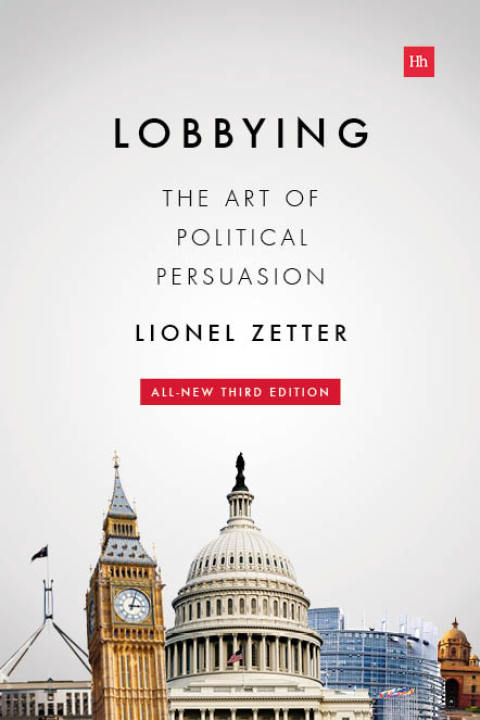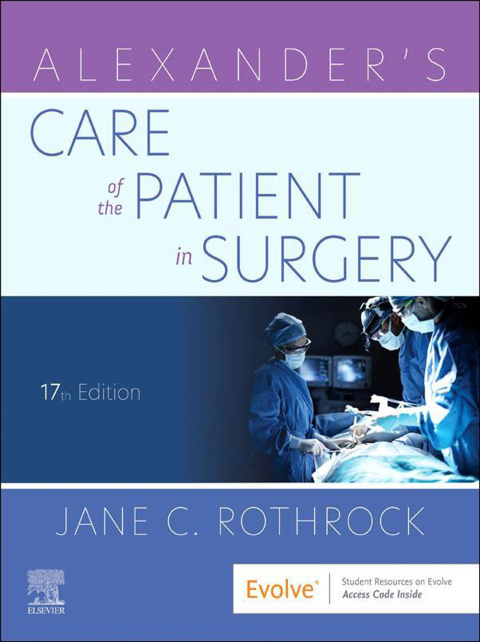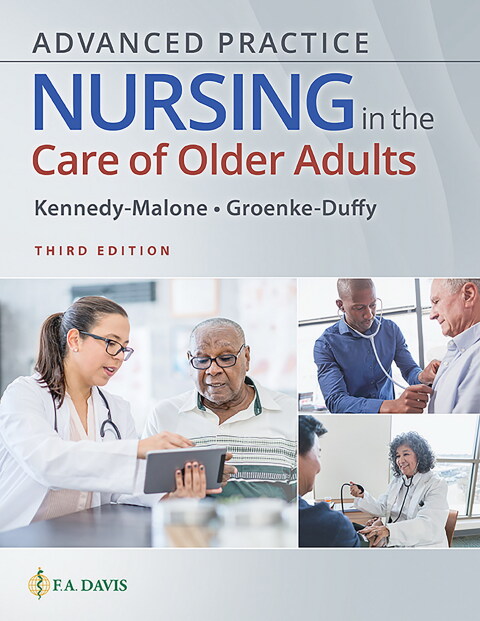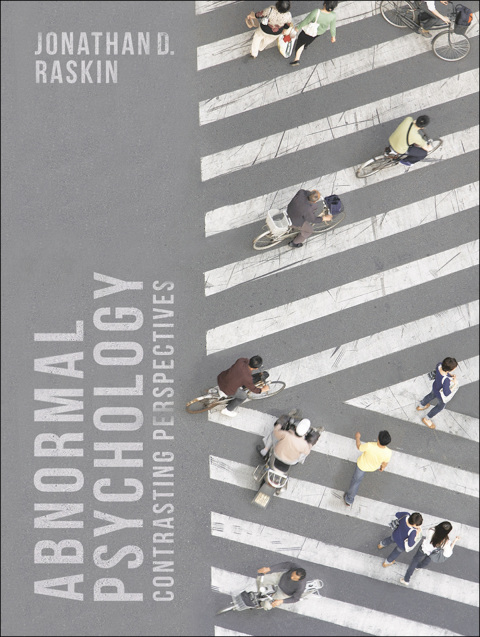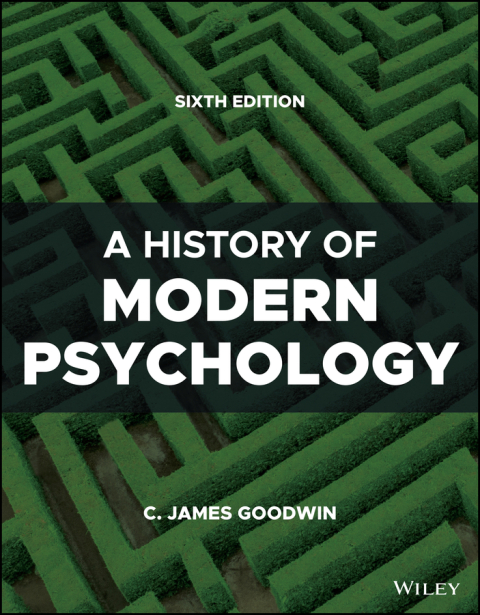Description
Efnisyfirlit
- Contents
- Praise for Lobbying
- About the Author
- Foreword
- Preface
- Acknowledgements
- Part 1: Introduction to Lobbying
- 1.1 Definitions
- 1.2 History
- 1.3 Ethics and Regulation
- 1.4 Funding and Donations
- Part 2: The Mechanics of Lobbying
- 2.1 Rationale for Lobbying
- 2.1.1 Threat
- 2.1.2 Opportunity
- 2.2 Types of Lobbying Campaigns
- 2.2.1 Profile raising
- 2.2.2 Contact programme
- 2.2.3 Policy shaping
- 2.2.4 Legislation changing
- 2.3 Starting a Career in Lobbying
- 2.3.1 Academic qualifications
- 2.3.2 Internships
- 2.3.3 Advertisements
- 2.3.4 Websites
- 2.3.5 Recruitment consultancies
- 2.4 Appointing a Lobbying Consultancy
- 2.4.1 Written proposal
- 2.4.2 Presentation
- 2.4.3 Contractual benchmarks
- 2.4.4 Freelancers
- Part 3: The Tools of Lobbying
- 3.1 Monitoring and Intelligence
- 3.1.1 In-house monitoring
- 3.1.2 Monitoring agencies
- 3.1.3 Public affairs consultancy monitoring
- 3.2 Reference Titles
- 3.3 Opinion Polling
- 3.4 Relationship Management
- 3.5 Online Campaigning
- 3.6 Messaging
- 3.7 The Media
- Part 4: Lobbying Whitehall and Westminster
- 4.1 The Civil Service
- 4.1.1 Whitehall
- 4.1.2 Contacting civil servants
- 4.1.3 Special advisers
- 4.1.4 Executive agencies and non-departmental public bodies
- 4.1.5 Regulators
- 4.2 Political Parties
- 4.3 House of Commons
- 4.3.1 Prime Minister
- 4.3.2 Cabinet
- 4.3.3 Ministers
- 4.3.4 Parliamentary private secretaries
- 4.3.5 Whips
- 4.3.6 Members of parliament
- 4.3.7 Prospective parliamentary candidates
- 4.3.8 Queen’s Speech
- 4.3.9 Select committees
- 4.3.10 Consultation documents
- 4.3.11 Early day motions
- 4.3.12 Business questions
- 4.3.13 Petitions
- 4.3.14 Oral questions
- 4.3.15 Prime Minister’s questions
- 4.3.16 Written questions
- 4.3.17 Written ministerial statements
- 4.3.18 Urgent questions
- 4.3.19 All-Party Parliamentary Groups
- 4.3.20 Party committees and groups
- 4.3.21 Exhibitions
- 4.3.22 Function rooms
- 4.3.23 Mass lobbies
- 4.3.24 Debates
- 4.3.25 Legislation
- 4.3.26 Finance
- 4.3.27 House of Commons reform
- 4.4 House of Lords
- 4.4.1 Cabinet
- 4.4.2 Ministers
- 4.4.3 Whips
- 4.4.4 Queen’s Speech
- 4.4.5 Select committees
- 4.4.6 Oral questions
- 4.4.7 Written questions
- 4.4.8 Debates
- 4.4.9 Legislation
- 4.4.10 House of Lords reform
- Part 5: Planning and implementing a public affairs campaign
- 5.1 Planning a Public Affairs Campaign
- 5.1.1 Alignment
- 5.1.2 Priorities
- 5.1.3 Objectives
- 5.1.4 Message
- 5.1.5 Policy environment
- 5.1.6 Stakeholder mapping
- 5.2. Implementing a Public Affairs Campaign
- 5.2.1 Lobbying tactics
- 5.2.2 Monitoring and Intelligence
- 5.2.3 Tasks
- 5.2.4 Timetable
- 5.2.5 Coalitions
- 5.2.6 Media and social media
- 5.2.7 Campaign phases
- 5.2.8 Adapt
- 5.2.9 Evaluate
- Part 6: Lobbying Other UK Institutions
- 6.1 Scottish Parliament
- 6.1.1 Powers
- 6.1.2 First minister
- 6.1.3 Cabinet
- 6.1.4 Legislation
- 6.1.5 Committees
- 6.1.6 Oral questions
- 6.1.7 Written questions
- 6.1.8 Motions
- 6.1.9 Petitions
- 6.2 Scottish Government
- 6.3 Scotland Office
- 6.4 Scottish Affairs Select Committee
- 6.5 Scottish Grand Committee
- 6.6 National Assembly for Wales
- 6.6.1 Powers
- 6.6.2 First minister
- 6.6.3 Cabinet
- 6.6.4 Departments
- 6.6.5 Finances
- 6.6.6 Legislation
- 6.6.7 Debates
- 6.6.8 Committees
- 6.6.9 Questions
- 6.6.10 Petitions
- 6.6.11 Cross-party groups
- 6.7 Wales Office
- 6.8 Welsh Affairs Select Committee
- 6.9 Welsh Grand Committee
- 6.10 Northern Ireland Assembly
- 6.10.1 Powers
- 6.10.2 First minister and deputy first minister
- 6.10.3 Executive Committee
- 6.10.4 Legislation
- 6.10.5 Finance
- 6.10.6 Debates
- 6.10.7 Committees
- 6.10.8 Questions
- 6.10.9 Petitions
- 6.11 Northern Ireland Executive Departments
- 6.12 Northern Ireland Office
- 6.13 Northern Ireland Affairs Select Committee
- 6.14 Northern Ireland Grand Committee
- 6.15 Greater London Authority
- 6.15.1 Mayor of London
- 6.15.2 London Assembly
- 6.15.3 Finances
- 6.16 Local Government
- 6.16.1 Structure
- 6.16.2 Planning
- 6.16.3 Licensing
- 6.16.4 Procurement
- 6.17 Parliamentary Commissioner for Administration (the Ombudsman)
- 6.18 Judiciary
- 6.18.1 Pepper v Hart
- 6.18.2 Judicial Review
- 6.18.3 Human Rights Act
- 6.18.4 European Court of Justice
- Part 7: Lobbying the European Union
- 7.1 History and Background
- 7.2 European Council
- 7.3 Council of Ministers
- 7.3.1 Presidency
- 7.3.2 Comitology
- 7.3.3 COREPER
- 7.3.4 UKREP
- 7.4 European Commission
- 7.4.1 Powers
- 7.4.2 President
- 7.4.3 College of Commissioners
- 7.4.4 Directorates-General
- 7.4.5 UK offices
- 7.5 European Parliament
- 7.5.1 President
- 7.5.2 Members of the European Parliament
- 7.5.3 Powers
- 7.5.4 Parties and political groups
- 7.5.5 Committees of the European Parliament
- 7.5.6 Intergroups
- 7.5.7 Questions
- 7.5.8 Resolutions
- 7.5.9 Petitions
- 7.5.10 Ombudsman
- 7.5.11 UK offices
- 7.6 Policy Formulation
- 7.6.1 Drivers
- 7.6.2 Policy areas
- 7.6.3 Roles of the institutions
- 7.6.4 Documents
- 7.7 Legislative Process
- 7.7.1 European Union law – types
- 7.7.2 European Union law – procedures
- 7.8 Finances
- 7.9 Other European Union Institutions
- 7.9.1 The European Court of Justice
- 7.9.2 European Court of Auditors
- 7.9.3 European Economic and Social Committee
- 7.9.4 Committee of the Regions
- 7.9.5 European Central Bank
- 7.9.6 European Investment Bank
- 7.9.7 European Union agencies
- 7.10 Other European Institutions
- 7.10.1 Council of Europe
- 7.10.2 European Court of Human Rights
- Part 8: Lobbying in the United States of America
- 8.1 Constitution
- 8.2 President
- 8.3 Senate
- 8.3.1 Senior positions
- 8.4 House of Representatives
- 8.4.1 Senior positions
- 8.5 Committees
- 8.5.1 Senate committees
- 8.5.2 House of Representatives committees
- 8.5.3 Joint committees
- 8.6 Legislation
- 8.7 Finances
- 8.8 Judiciary
- 8.8.1 Supreme Court
- 8.8.2 Other courts
- 8.9 States
- 8.10 Ultimate Lobbying
- Part 9: Lobbying in Asia
- 9.1 China
- 9.1.1 Communist Party of China (CPC)
- 9.1.2 State and Central People’s Government
- 9.1.3 National People’s Congress (NPC)
- 9.1.4 Chinese People’s Political Consultative Conference (CPCC)
- 9.1.5 State Council
- 9.1.6 People’s Liberation Army (PLA)
- 9.1.7 The people
- 9.2 Hong Kong
- 9.2.1 Chief executive
- 9.2.2 Executive Council
- 9.2.3 Hong Kong Government
- 9.2.4 Legislative Council (LegCo)
- 9.2.5 The future
- 9.3 India
- 9.3.1 Legislative process
- 9.3.2 Finances
- 9.4 Japan
- 9.4.1 Diet
- 9.4.2 House of Representatives
- 9.4.3 House of Councillors
- 9.4.4 Prime Minister and cabinet
- 9.4.5 Ministries
- 9.4.6 Policy councils (shingi-kai)
- 9.4.7 Diet Standing Committees
- 9.4.8 Party committees
- 9.4.9 Parliamentary Leagues
- 9.4.10 Study groups
- 9.4.11 Media
- 9.4.12 Business lobbying groups – Japan Inc
- 9.4.13 Culture and language
- 9.4.14 The future
- 9.5 Thailand
- 9.5.1 National Assembly
- 9.6 Vietnam
- 9.7 Taiwan
- 9.8 South Korea
- 9.9 Indonesia
- 9.10 Australia
- 9.10.1 Federal government
- 9.10.2 House of Representatives
- 9.10.3 Senate
- 9.10.4 States
- 9.10.5 Judiciary
- 9.11 Unique Challenges
- Part 10: Lobbying in the Middle East and Arabian Gulf
- 10.1 Bahrain
- 10.2 Egypt
- 10.3 Iran
- 10.4 Iraq
- 10.5 Israel
- 10.6 Jordan
- 10.7 Kuwait
- 10.8 Lebanon
- 10.9 Oman
- 10.10 Qatar
- 10.11 Saudi Arabia
- 10.12 Syria
- 10.13 United Arab Emirates
- Part 11: Public Diplomacy
- 11.1 Diplomatic Mission To Government
- 11.2 Government to Government
- Bibliography
- Websites
- Publishing details

